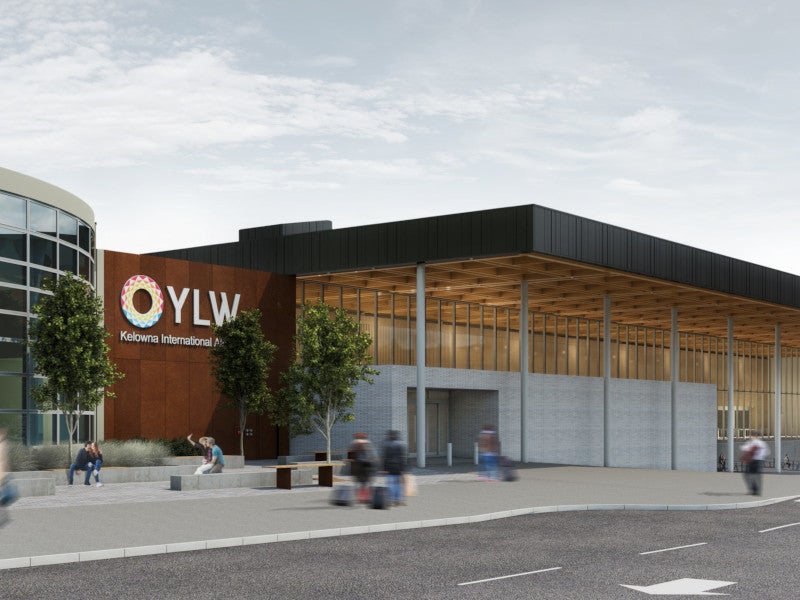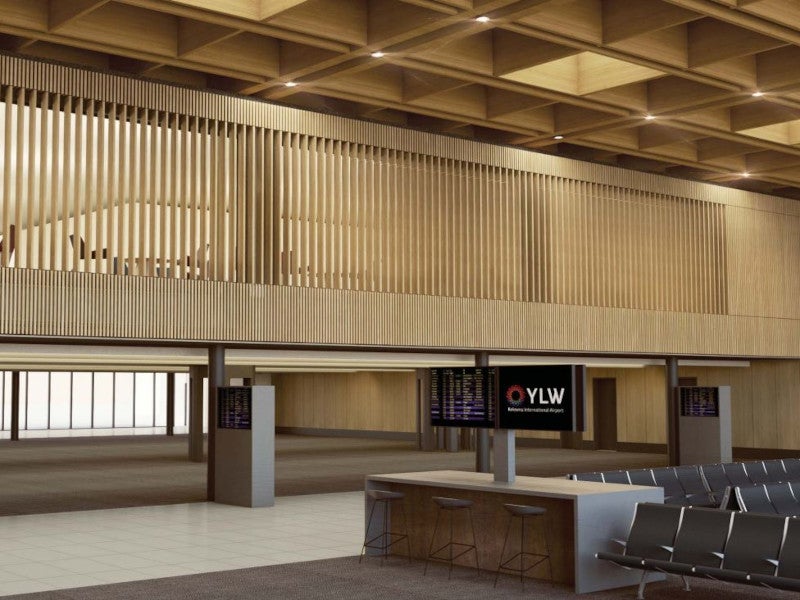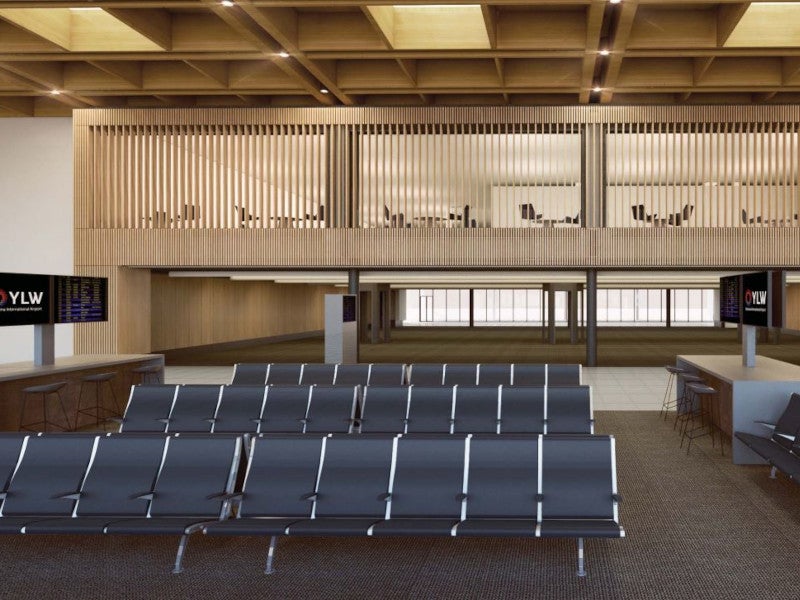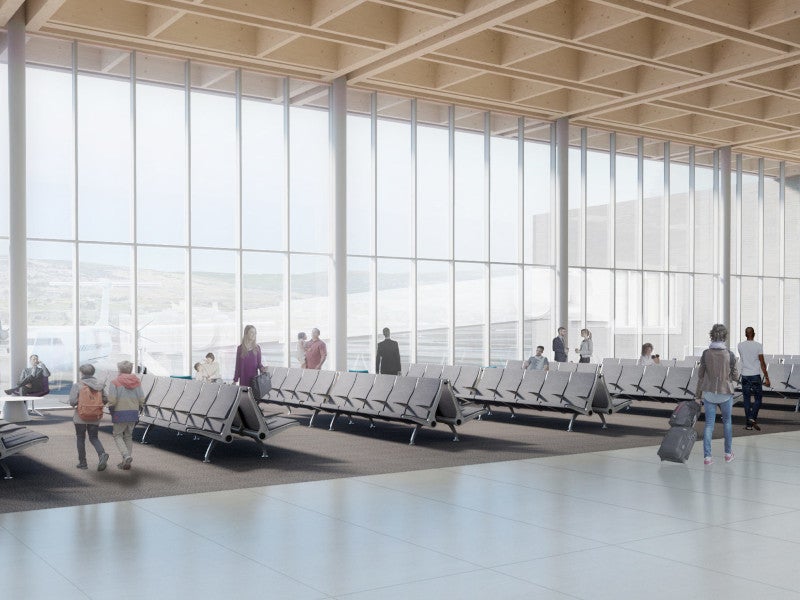Kelowna International Airport, operated by the City of Kelowna, is in British Columbia (BC), Canada. The airport handled more than 1.7 million passengers in 2022.
The airport unveiled plans for an air terminal building (ATB) expansion project in December 2019 to meet the growing passenger traffic, which is expected to reach 3.5 million a year by 2045.
The expansion will increase capacity by utilising existing and new spaces efficiently and minimising environmental impact and costs. It is crucial for maintaining air services and boosting the regional economy.
The terminal expansion is being undertaken in two phases. Enabling works for the phase one expansion commenced in 2022 while construction began in September 2023.
Phase one of the expansion is scheduled to be completed in 2026 while construction on phase two will begin in 2036.
Kelowna International Airport terminal expansion details
The two-phase expansion of the Kelowna International Airport terminal is being undertaken at the southern end of the airport.
The first phase of the project will extend the terminal by approximately 5,590m² (60,170ft²) and refurbish 1,200m² of the existing building. The existing roof of the terminal will be replaced as it has reached its end of life.
The expanded terminal will feature an extended departure lounge to enhance the passenger experience and offer improved food and beverage choices. In addition, the pre-screening checkpoints will be extended to increase the capacity and improve efficiency using technology.
The expansion will result in new direct access to several gates for both departing and arriving passengers through improved wayfinding.
Phase two of the expansion will further expand the terminal building and shift the domestic arrivals area towards the south, apart from adding a new domestic baggage claim space.
The existing arrivals area will be repurposed to expand the international arrivals area and Canada Border Services Agency (CBSA). In addition, the departures lounge will be further expanded to boost capacity, and the rental car, shuttle and tourism booths will be relocated.
Terminal building roof design at Kelowna International Airport
The Kelowna International Airport terminal building’s roof will be replaced with 4,460m² of new roofing. The new waffle roof structure will be made of mass timber and resemble the existing concrete waffle slab roof. It will feature a waterproof membrane, as well as improved insulation to enhance energy efficiency.
The waffle structure will comprise a series of prefabricated cross-laminated timber (CLT) panels supported by glulam-style girders cantilevered 5m in the north-south direction. The girders will span 20m above steel columns extending from the main floor.
The CLT panels will cover up the lights and utilities present inside the roof such as sprinklers, conduits, HVAC, and drainage systems.
The prefabricated panels will significantly reduce the time and cost associated with the erection and installation of the waffle roof while maintaining the aesthetic appeal. In addition, the panels are made of naturally renewable and locally sourced wood and are lighter than traditional concrete and steel.
The roof structure also has a modular design, which can be repeated and expanded, to accommodate future growth at the airport.
Financing for Kelowna airport expansion
The airport was awarded C$15.2m in funding under Transport Canada’s Airport Critical Infrastructure Program in January 2022 to support the terminal expansion and other projects being undertaken at the airport.
The British Columbia provincial government is providing C$500,000 to cover the costs associated with the terminal’s mass timber roof construction apart from the development of a digital construction twin, fire modelling, and life-cycle assessment of building materials.
Contractors involved
The office of mcfarlane biggar architects + designers (omb), a design company based in Canada, is the architect for the terminal’s roof structure, while Fast + Epp is the structural engineer.
Introba, a construction engineering and consulting services company, was appointed as the mechanical and electrical engineer.
The project manager for the expansion is management consulting company 3BP Solutions while the construction manager is PCL Construction, a construction services provider.
GHL Consultants was contracted to provide building code consulting services. Brace Consulting, a programme and project management company, is also involved in the project.







